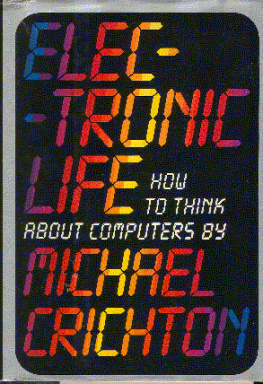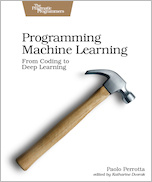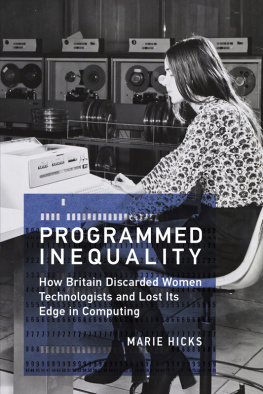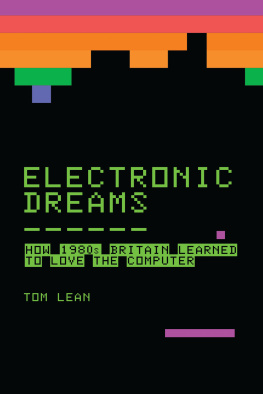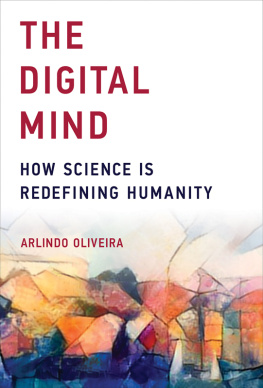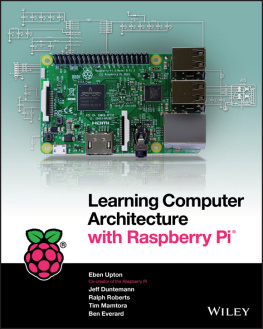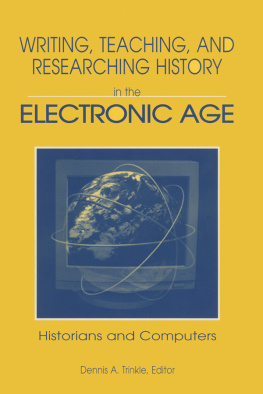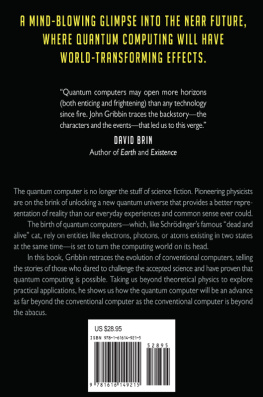ELECTRONIC DREAMS
Also available in the Bloomsbury Sigma series:
Sex on Earth by Jules Howard
p53 The Gene that Cracked the Cancer Code by Sue Armstrong
Atoms Under the Floorboards by Chris Woodford
Spirals in Time by Helen Scales
Chilled by Tom Jackson
A is for Arsenic by Kathryn Harkup
Breaking the Chains of Gravity by Amy Shira Teitel
Suspicious Minds by Rob Brotherton
Herding Hemingways Cats by Kat Arney
ELECTRONIC DREAMS
How 1980s Britain Learned to Love the Computer
Tom Lean

Contents
In the 1980s, computers invaded British homes for the first time, a wave of cheap and futuristic microcomputers that allowed millions of people to discover for themselves what a computer was and how it worked. For most of their earlier history, computers were too large, too expensive and too complicated for the general public to understand; they were machines for big science, big government, big business and perhaps even Big Brother. Yet with the development of the microprocessor in the 1970s, the tiny computer on a chip, dramatically reduced the cost and size of computing, and brought prophecies of an information technology revolution that would change the world. Against this backdrop, Britain embraced home computers as introductions to information technology, passports to the future that would prepare people for the changes to come.
As home computing boomed manufacturers developed a staggeringly diverse array of computers to meet the demand. They came in different shapes and sizes, but shared many common features too. Most were intended originally as affordable and user-friendly introductions to computing; comparatively simple devices of limited power and sophistication, but with enormous potential for people to tinker with and learn to program. Home computers were there to be explored, experimented with and understood, but beyond this there was only a vague idea of what they were actually for. They were open to a wide range of different interpretations, and 1980s Britain imprinted itself on this eminently malleable technology in many different ways: to the state and educationalists it became a tool of computer literacy, a way to remake the British economy and workforce; to bedroom programmers computers were a means of expressing themselves in creative ways, as they wrote games to push machines beyond designers expectations; to Thatcherites they were a symbol of the nations enterprise and inventiveness; to millions of people around the country computers became entertainment platforms, information terminals, household aides, office tool, or whatever other uses users could conceive. The home computer boom was not just about computers, but a huge period of experimentation to find out what they could do, and the coming together of all these different groups and agendas created a curiously British cultural event.
After every boom follows a bust. By the mid-1980s disillusionment with cheap home computers was setting in: familiar computer companies went bust; home computers were reduced to the status of toys as gaming blossomed and users turned to more sophisticated real computers; the IBM PC standard killed much of the diversity of the boom years. The home computer should have died then and there, but it did not. Embedded in personal and popular memory, and kept alive by collectors and retrocomputing fans, the machines of the 1980s are living an active semi-retirement three decades later. But more than that, the legacies of the home computer boom are all around us in a world where computers have become boringly commonplace. Yet as news today fills with stories of digital revolution and digital literacy, the promises of information technology to deliver disruptive change remain as strong as ever; twenty-first century Britain is rediscovering and recreating the promises of 1980s home computing anew. This is the story of the home computer boom, and how Britain stopped worrying about microchips and learned to love the computer.
In June 1948, in a drab laboratory in the Gothic surroundings of the Victoria University of Manchester, a small team of electronics engineers observed the success of an experiment they had been working on for months. The object of their interest was an untidy mass of electronics that filled the tall, bookcase-like racks lining the walls of the room. At the centre of this birds nest of cables, radio valves and other components glowed a small, round display screen that allowed a glimpse into the machines electronic memory, a novel device sitting off to one side hidden in a metal box. This hotchpotch assembly of electronic bits and bobs was officially known as the Small-Scale Experimental Machine (SSEM), but has become better known as the Manchester Baby. It was the worlds first electronic stored program computer, a computer that used an electronic memory to store data and the program that instructed it what to do, the basic architecture still used by most computers today.
Babys creators, Tom Kilburn, Geoffrey Tootill and Freddy Williams, were all electronics engineers seasoned by years of work developing wartime radar systems under great secrecy and urgency. It took them months of methodical work to complete the computer, building, testing and installing each of the computers units before moving on to the next. The very last thing we could contemplate doing was to design the whole thing, and have it all built, and wire it all up, and then find out why it didnt work, recalls Geoff Tootill. We went on with this process of adding the units and making the whole lot do something together at every stage, until we got to the stage when wed made a computer.digits danced across the display screen as the computer repeatedly divided numbers as it searched for the highest proper factor of 262,144. By lunchtime it had produced a result, 131,072, displayed as a series of dots glowing on the display screen.
It is nice to imagine Babys creators pausing to think of how their creation could change the world, the green glow of its small display screen marking the dawn of a new age. In fact it was a low-key moment. No photographs were taken at the time and no press conferences were called. Years later Williams would say that nothing was ever the same again, after the machine completed its first run, but it needs hindsight to appreciate this as a great event. As Tootill recalls it, Babys first run was an understated moment: We congratulated each other and we went to lunch together, which we quite often did anyway. To those there, this was an experiment that had worked, rather than a world-changing event. At the time, Tootill had thought that computers might be useful for complex calculations in weather forecasting or the development of atomic energy, and that there would be scope for another one, or perhaps two big computers in the UK, and three or four in Europe, and probably half a dozen in the US, and that was the eventual scope of our invention.
In this modest way the worlds first modern computer came to life, born in a Victorian laboratory amid the post-war shortages and soot of Manchester. For a short time, Baby placed Britain at the very forefront of computing, before well-financed laboratories in the US and elsewhere raced far ahead. Forty years later a very different Britain once again lead the world in computing, as millions of people purchased their first personal computer, and the country boasted the worlds highest level of computer ownership. Between a single experimental machine in post-war Britain and the millions of 1980s personal computers was a story of swift technological development and huge changes in the ways that people thought about computers. This book is a history of how computers entered the homes of 1980s Britain, but to appreciate the nature of this development it helps to have a little historical context of what computers were like in the decades before they became technologies of everyday life.
Next page

